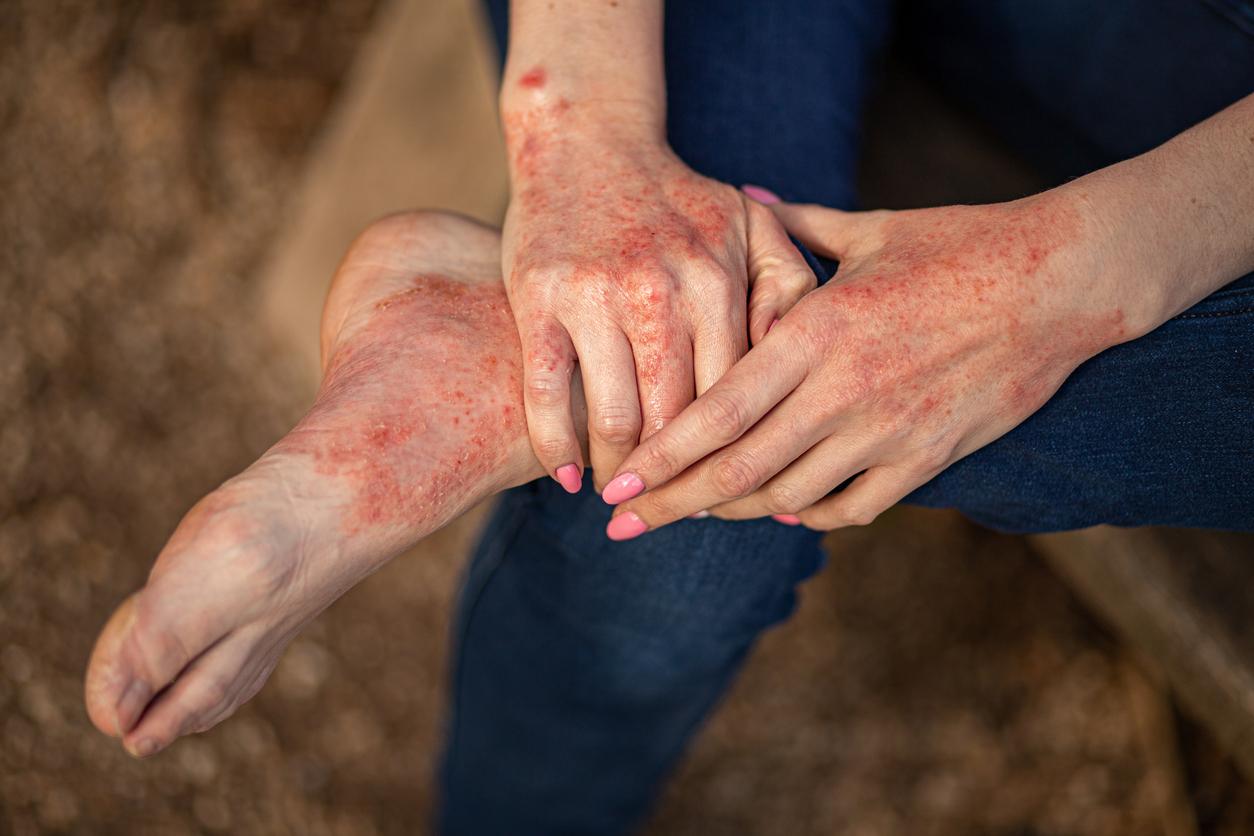Long-term exposure to air pollution influences the development of psoriasis in genetically predisposed individuals.

- Psoriasis is a chronic inflammatory skin disease that affects around 2% of the French population.
- A new cohort study shows that exposure to air pollution increases the risk of its occurrence in those at risk.
- “There is a need to design and implement effective interventions to mitigate air pollution and protect individuals from the effects associated with psoriasis,” the authors conclude.
“Since the beginning of the 21st century, the incidence and prevalence of psoriasis have increased“, recall Dr. Junhui Wu and his colleagues from the School of Nursing at Peking University, in the preamble to their new research. Published in JAMA Network Open On July 16, it highlighted the significant influence of exposure to air pollution on the risk of developing psoriasis in people at genetic risk.
Air pollution, a risk factor for psoriasis
This cohort study included 474,055 participants, drawn from UK Biobank data. The sample consisted of people without psoriasis at baseline for whom data on their exposure to air pollution were available. During the median follow-up of 11.91 years, 4,031 cases of psoriasis were recorded.
“Significant interactions between air pollution and genetic predisposition to incident psoriasis were observed“, say the study authors, Dr. Junhui Wu and colleagues from the Peking University School of Nursing. Specifically, it was long-term exposure to fine particles smaller than 2.5 µm and smaller than 10 µm in diameter, nitrogen dioxide and nitrogen oxides that elevated the incidence of psoriasis in predisposed individuals.
“Therefore, there is a need to design and implement effective interventions to mitigate air pollution and protect individuals from the effects associated with psoriasis.”, the researchers conclude.
No definitive treatment for psoriasis
This chronic inflammatory skin disease affects approximately 2% of French women and men. Psoriasis is complicated in at least 20% of cases by the appearance of joint manifestations called psoriatic rheumatism.Furthermore, psoriasis is associated with an increase in the risk of cardiovascular disease (atherosclerosis, type 2 diabetes, myocardial infarction, etc.) of around 25%, independently of other traditional risk factors such as being overweight, high cholesterol or diabetes, noted Inserm. This risk increases with the severity of psoriasis and rheumatic involvement.”

Unfortunately, there is currently no treatment to cure psoriasis, but only symptomatic treatments to improve the quality of life of patients: local treatments, phototherapy, immunosuppressants or even biotherapy.

















